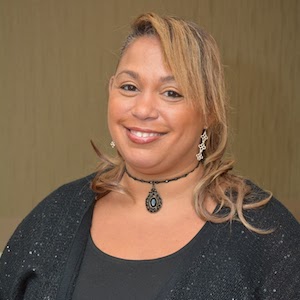Rachel J. Levy-Bell, PsyD
 Program Director and Clinical Associate Professor
Program Director and Clinical Associate Professor
Education
I received my BA from Clark University in Worcester, MA and my MA and Doctoral degrees from the Chicago School of Professional Psychology in Chicago, IL.
Licensure
Massachusetts Licensed Psychologist (2002-Present)
Biography
Dr. Rachel Levy-Bell is the Program Director and Clinical Associate Professor in the Mental Health Counseling & Behavioral Medicine Program at Boston University School of Medicine. She also runs a private practice in Boston, where she conducts individual psychotherapy with a diagnostically and age-diverse population.
Dr. Levy-Bell earned her BA in Psychology from Clark University and received her doctorate from the Chicago School of Professional Psychology where she graduated with Honors. Her dissertation examined the relationship between coping style and spirituality as it related to adaptation to HIV disease in African-American Women. Dr. Levy was an intern at Cook County Hospital’s Women & Children’s HIV Clinic and completed her residency training at Temple University Hospital. The focus of her residency training on assessment and therapy with cardiac and pulmonary transplant candidates and inpatient psychiatry. Postdoctoral training was conducted at Boston University Medical Center’s Dr. Solomon Carter Fuller Mental Health Center. Over the course of her clinical career, Dr. Levy-Bell has worked in emergency services, psychiatric inpatient psychiatry, rape crisis, outpatient, and medical inpatient services.
Dr. Levy’s clinical and research experiences are in the areas of HIV disease in multicultural populations, cross-cultural psychology, medical psychology in the realm of organ transplantation, and disaster psychology. Over the past several years she has provided several consultations through the Massachusetts Department of Mental Health on training professional clinical staff on how to perform HIV risk assessments with the chronically mentally ill population. Dr. Levy has been a consultant on HIV prevention and mental health treatment to various community-based agencies and school systems. She was also a clinician for the Federal Emergency Management Team through the Department of Mental Health’s Crisis Counseling network, working with airline staff, crew, and families affected by the occurrences of September 11th.
Clinical Interest
- Providing supervision to counselors in training
- The impact and treatment of HIV/AIDS in culturally diverse populations with specific emphasis on the African-American culture
- Medical psychology
- Disaster planning and psychological first aid
- Cross-Cultural Issues in supervision and treatment
- Counselor identity development
Questions and Answers
Q: Please describe your theoretical orientation and teaching philosophy.
A: As a supervisor, I am open to the teaching and application of various theoretical orientations and find great value in working from an integrative model of treatment. Clinically and conceptually I view the development of psychopathology through a biopsychosocial, cross-cultural, and psychodynamic lens with an emphasis on object-relations and interpersonal theories. My teaching philosophy is based on the notion that teaching and learning are integrative processes. Teaching should be a dynamic experience for both the instructor and the student. The classroom setting should be a safe and encouraging space for students to exchange ideas, share personal experiences from the work they are engaging in clinically, and feel supported in their development as clinical counselors. I teach students through a developmental framework, where professional and clinical expectations are assessed based on the strengths and challenges that each student brings to supervision and practice. I attempt to meet each student where they are at philosophically and work towards understanding their worldview of clinical practice. I believe in the importance of providing critical feedback to students and value feedback from students. Teaching for me is based on the foundation of the relationships I create with my students. I am extremely invested in training clinicians who are passionate about making an impact on the lives of their patients and becoming an integral component in the field of healthcare.
Q: Why did you choose to be a faculty member in the Mental Health Counseling and Behavioral Medicine Program?
A: I bring a unique perspective as the Clinical Director of the Mental Health Counseling and Behavioral Medicine Program. As an individual who comes from a biracial and multicultural heritage, I have always been fascinated by interpersonal and intercultural relationships. During my late adolescents and young adulthood the world began to become impacted by HIV and AIDS. I was immediately drawn to the dichotomy of living in a society where humans can feel so threatened by the unknown and react to this fear either through empathy or discrimination. It was at that point that I felt the desire to understand and become part of the cultural movement of acceptance without stigma as it pertained to HIV/AIDS, other medical illnesses, as well as mental health issues. I am committed to working with Clinical Mental Health students to alter health disparities that exist within our culture. To this end I am able to identify a broad range of field work settings where students are able to serve the needs of a multicultural underserved population.
Q: What do you enjoy most about teaching in the Mental Health Counseling and Behavioral Medicine Program?
A: I thoroughly enjoy and respect the collaborations and relationships I share with our faculty. I feel part of a community of scholars and clinicians that share my mission of training students to become therapists that truly respect and feel a sense of hopefulness and empathy for the patients they treat. The students themselves are wonderful to work with. The most rewarding part of my job as a supervisor and Director of Clinical Training is being part of a student’s development as a therapist. Being their with them during their first patient interview in their first year to being in awe of their skill set in their 2nd year where one can truly witness their evolution from novice to experienced clinician and advocate for their clients is an inspiring experience. Watching their personal development through professional practice is an exciting part of my work.